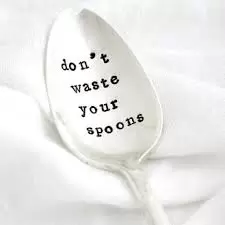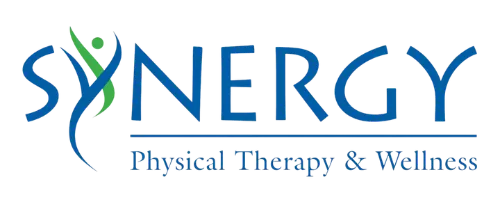As we age, maintaining health and independence becomes a top priority. Strength training, a type of resistance exercise often overshadowed by cardio or flexibility exercises, is a cornerstone of healthy aging. Whether you’re in your 30s or 80s, incorporating strength training into your routine can help you live a longer, more vibrant life. Here’s why everyone needs to embrace strength training and how to overcome common barriers to getting started.
1. Avoiding Frailty
Frailty, marked by reduced strength, endurance, and physical function, is a growing concern with age. According to the National Institute on Aging, frailty increases the risk of falls, disability, and hospitalization. For women, who face a higher risk of osteoporosis, frailty can also lead to fractures with prolonged recovery. Strength training combats frailty by building muscle mass and bone density.
A 2021 study in the Journal of Clinical Medicine found that resistance training significantly improved muscle strength and reduced frailty markers in older adults. For women, this is especially critical, as stronger muscles and bones reduce the risk of osteoporotic fractures. Exercises like weightlifting, bodyweight workouts, or resistance bands enhance physical resilience, making daily tasks like carrying groceries or climbing stairs safer and easier.
(Want to know more about osteoporosis and PT’s role in it’s prevention and treatment? Check out our previous article for more information: Osteoporosis, Osteopenia, and Physical Therapy)
2. Staying Able to Do the Things You Love
Strength training ensures you can keep enjoying activities like gardening, hiking, or playing with grandkids. According to an article in Harvard Health Publishing, muscle strength can begin to decline by about 1-2% per year after age 35 due to sarcopenia, also known as age-related muscle loss. This muscle loss accelerates as our bodies age. This loss can limit your ability to perform daily tasks or pursue hobbies, particularly for women who may experience accelerated muscle loss during menopause due to declining estrogen levels.
Regular strength training preserves functional capacity, and benefits multiple domains of health. A 2019 study published in Frontiers in Physiology showed that resistance exercise not only improved musculoskeletal health, but also helped patients manage chronic conditions like cardiovascular disease and diabetes (Mcleod et al., 2019). Older adults who participated consistently in resistance strength exercise maintained better mobility, overall health, and independence than those who did not. Additionally, the same study found that those using light weight or only body weight while strength training was just as effective as heavy weights (McLeod et al., 2019). The most important factor of strength training for healthy aging is finding a routine that is suited to your body and your ability. A consultation with a physical therapist can help you find the right routine and guide you through proper exercise form to ensure your exercise is preventing injury, not causing it. Strength training empowers you to stay active, healthy, and independent.
3. More Muscle Mass Equals Improved Blood Sugar Control
Building muscle isn’t just about strength—it’s about metabolic health. Muscle tissue helps regulate blood sugar by improving insulin sensitivity, which is vital for preventing or managing type 2 diabetes, a condition more prevalent with age (Mcleod et al., 2019). Increased muscle mass enhances glucose uptake, reducing blood sugar spikes. This is particularly important for women, who may face increased risks for diabetes complications. Researchers have found that resistance training improved glycemic control in older adults with type 2 diabetes (Mcleod et al., 2019). In their review of resistance exercise and blood sugar management, resistance exercise performed for 8 weeks resulted in clinical improvements in A1C management and improvements in insulin resistance. These findings are relevant not just to individuals living with diabetes, but also those with insulin resistance, metabolic disorders, or a family history of diabetes. More muscle mass means greater glucose storage capacity, supporting overall metabolic health. Even moderate strength training, like lifting weights twice a week, can make a significant difference.
Common Barriers to Starting Strength Training
Despite its benefits, many hesitate to start strength training. Here are common barriers and solutions:
- Lack of Knowledge: Many feel intimidated by unfamiliar exercises.
- Solution: Start with simple bodyweight moves like squats or push-ups. Online resources from the American Council on Exercise (ACE) offer free beginner guides, or consult a certified personal trainer for a tailored program.
- Fear of Injury: Older adults, especially women with lower bone density, may worry about getting hurt.
- Solution: Begin with low weights or resistance bands under professional guidance. A 2018 study in Journal of Strength and Conditioning Research confirms supervised strength training is safe and effective for all ages when done correctly.
- Time Constraints: Busy schedules can make exercise feel daunting.
- Solution: Short, 20-minute strength workouts 2-3 times per week still deliver impactful benefits, per American College of Sports Medicine guidelines.
- Gym Intimidation: Gyms can feel overwhelming for beginners.
- Solution: Try home workouts with minimal equipment or join small group classes for older adults, which foster a supportive environment. Women-only classes can also provide a comfortable starting point.
Getting Started with Strength Training
To reap the benefits, aim for 3 sessions per week. Focus on compound movements—exercises that work multiple muscle groups at once, like squats, deadlifts, lunges, assisted pull-ups, and pushing-pressing motions. These maximize efficiency and functional strength. Start with light weights, resistance bands, or bodyweight exercises, gradually increasing intensity.
Safety Tip: Deadlifts, a powerful and functional movement, we commonly integrate this into out-patient rehabilitation strategy, but it does require proper technique to avoid injury. Begin with no weight, using a broomstick or similar tool to master form under a skilled coach’s guidance before adding weight. This is especially important to protect against lower back strain or injury.
Always consult a healthcare provider before starting a new exercise program, especially if you have chronic conditions like osteoporosis, chronic low back pain or shoulder problems. If you do struggle with any of these, one of our physical therapists can design a program tailored to your needs, and we’re here to support you every step of the way. If you are free from chronic conditions or pain a skilled coach or trainer can also be a great fit to get you started safely.
Strength training isn’t just for bodybuilders—it’s for everyone who values aging gracefully, staying active, and feeling their best. By building strength now, you’re investing in a healthier, more independent future.
References:
Harvard Health. (2023, February 14). Age and muscle loss. https://www.health.harvard.edu/exercise-and-fitness/age-and-muscle-loss
Mcleod, J. C., Stokes, T., & Phillips, S. M. (2019). Resistance Exercise training as a primary Countermeasure to Age-Related Chronic Disease. Frontiers in Physiology, 10. https://doi.org/10.3389/fphys.2019.00645
Talar, K., Hernández-Belmonte, A., Vetrovsky, T., Steffl, M., Kałamacka, E., & Courel-Ibáñez, J. (2021). Benefits of Resistance training in Early and late Stages of Frailty and sarcopenia: A Systematic Review and Meta-Analysis of Randomized Controlled Studies. Journal of Clinical Medicine, 10(8), 1630. https://doi.org/10.3390/jcm10081630




